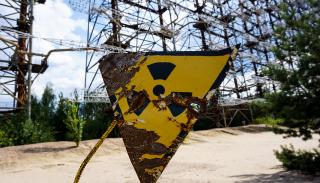
Breadcrumbs navigation
Accommodating Nutopia: The nuclear ban treaty and the developmental interests of Global South countries
In this short summary video, authors Andrew Futter and Olamide Samuel go through the key arguments from their new Review of International Studies (RIS) article - Accommodating Nutopia: The nuclear ban treaty and the developmental interests of Global South countries.
The article argues that the Treaty on the Prohibition of Nuclear Weapons (TPNW) would not have been possible without protecting the inalienable rights of states to pursue nuclear energy for peaceful purposes. Global South perspectives are often overlooked, and as such, current regimes of nuclear arms control and disarmament remain only partially understood in Western literature.
Want to know more? You can read the full article at DOI: https://doi.org/10.1017/S0260210523000396
This particular article is open access, however BISA members receive access to all articles in RIS (and our other journal European Journal of International Security) as a benefit of membership. To gain access, log in to your BISA account and scroll down to the 'Membership benefits' section. If you're not yet a member join today.
Abstract
This article argues that the Treaty on the Prohibition of Nuclear Weapons (TPNW) would not have been possible without protecting the inalienable rights of states to pursue nuclear energy for peaceful purposes. While some Western states and NGOs have pushed to ban all applications of nuclear technology, this was unacceptable to a large number of disarmament-supporting states from the Global South and the Non-Aligned Movement. Without support from states across the Global South, the TPNW would not have achieved the required number of signatories to be adopted. Thus, we argue that to properly understand the TPNW, an appreciation of states’ interests and motivations beyond their more widely discussed frustrations with the pace of nuclear disarmament is essential. We also argue that nuclear weapons scholarship must pay more attention to perspectives from the Global South and the concept of Nutopia – a belief in both the dystopian potential of nuclear weapons and the utopian possibilities of nuclear energy – in its understanding of nuclear politics, past and present. Global South perspectives are often overlooked, and as such, current regimes of nuclear arms control and disarmament remain only partially understood in Western literature.
Image by Ilja Nedilko licensed under the Unsplash licence.